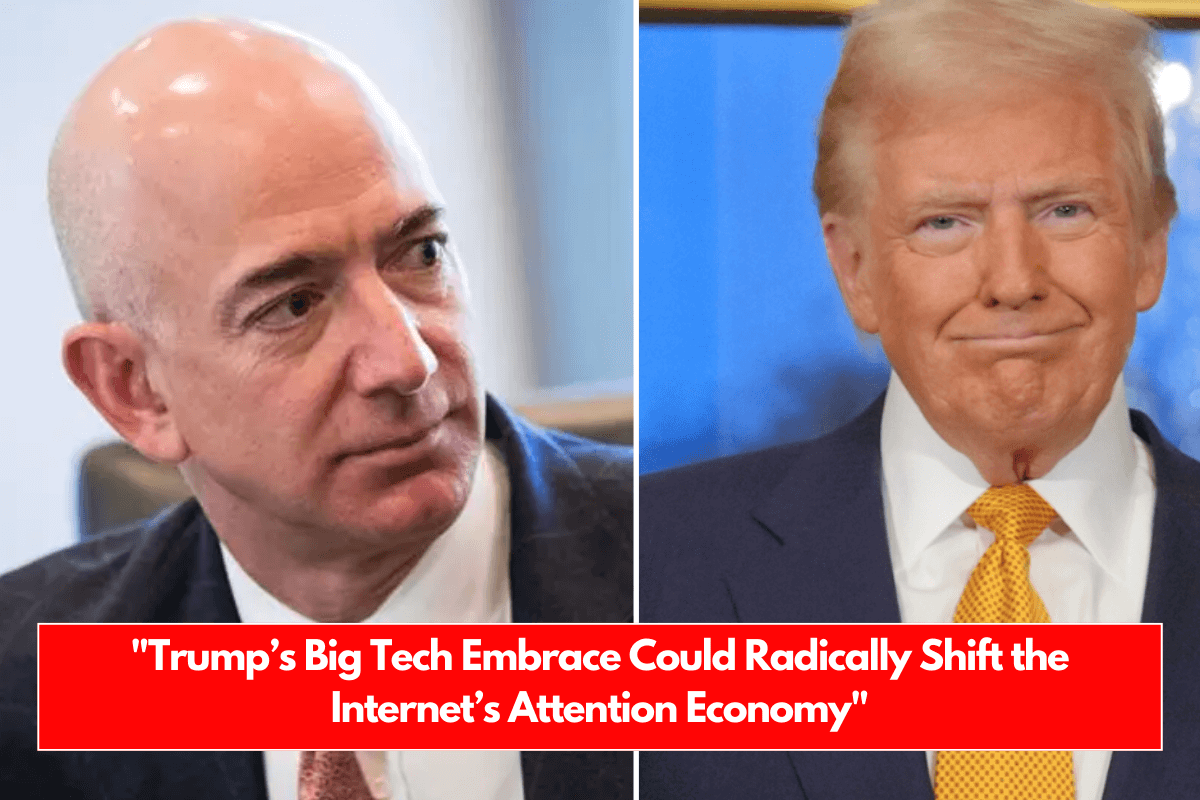At his inauguration, former President Donald Trump stood alongside tech titans like Mark Zuckerberg, Elon Musk, Jeff Bezos, and Sundar Pichai. This symbolic gathering reflected not just their economic power but their influence over the platforms that shape public opinion in America.
Now, with Trump back in the spotlight, these tech leaders are adapting their approach, potentially transforming U.S. tech policy and the future of digital communication.
Trump and Tech: From Adversaries to Allies
During Trump’s first term, tech companies faced heavy criticism from conservatives who accused them of biased content moderation, censorship, and monopolistic practices.
However, things have shifted dramatically. Many tech leaders have softened their stance toward Trump, driven in part by a realization that their platforms benefit from his polarizing presence.
Republicans, including Senator Josh Hawley, acknowledge this change but remain cautious. “These guys are businesspeople,” said Hawley, noting that tech firms now recognize the value of catering to Trump’s supporters, who form a significant part of the “attention economy.”
However, he warns against fully trusting them, emphasizing the need for antitrust legislation to limit their control over information and data.
What Tech Leaders Want from Trump
Despite Trump’s claim that tech leaders “won’t get anything from me,” industry insiders suggest otherwise. With artificial intelligence (AI) at the forefront of technological innovation, tech giants see Trump’s influence over AI regulations as a key opportunity.
Jeff Hauser, from the Revolving Door Project, believes tech companies are banking on Trump’s favorable policies to boost AI development. “They know that the executive branch has a huge role to play in this,” Hauser said.
Recent executive orders under Trump have already loosened regulations seen as barriers to AI innovation. Additionally, Trump reversed his stance on TikTok, dismissing national security concerns and describing the platform as vital for engaging young voters.
How Tech Companies Are Supporting Trump
Tech companies have made several moves that align with Trump’s interests:
- Meta (Facebook and Instagram) paid a $25 million settlement over its suspension of Trump’s accounts after the January 6 Capitol attack. The company has also added Republicans and Trump allies to its board and policy team and replaced its fact-checking program with a community-driven system similar to Musk’s model on X (formerly Twitter).
- Amazon announced a documentary about Melania Trump and expressed support for Trump’s anti-regulatory policies.
- Elon Musk’s X played a key role in helping Trump’s messaging proliferate during his recent campaign. Musk’s changes to the platform’s content moderation policies have allowed for greater conservative visibility, a move Republicans see as a win for free speech.
The Conservative Tech Agenda: Elevating Family Values
As the relationship between Trump and tech executives grows, conservatives see a unique opportunity to push their agenda.
A group of conservative intellectuals recently published a platform titled “A Future for the Family: A New Technology Agenda for the Right.” The document warns against technological advancements that could “supplant the human person” or make the family “biologically unnecessary.”
Brad Littlejohn, a co-author of the platform, sees the current moment as a turning point. He believes the conversation has shifted on issues like kids’ access to technology and social media addiction. “There’s been a tone of resignation,” Littlejohn said. “Now, people are realizing they can resist.”
Democrats’ Concerns: Disinformation, Bias, and Wealth Inequality
While Republicans celebrate their newfound influence over tech policy, Democrats worry about the implications. Representative Ro Khanna of California, whose district includes parts of Silicon Valley, warned that the rightward shift in tech could deepen wealth inequality and further enable the spread of disinformation.
Khanna believes that for Democrats to regain favor with tech leaders, they must present themselves as the party of innovation and entrepreneurship. “If we fail,” he said, “we miss an opportunity to harness tech for our vision and make incredible advancements in areas like personalized medicine and efficient energy use.”
The Future of Tech Policy: Who Holds the Power?
As Republicans push for looser regulations and less content moderation, the question remains: How long will this alliance last? While conservatives see current policy shifts as a victory, they acknowledge that tech companies have their own agendas—particularly when it comes to AI, data control, and the attention economy.
With Trump’s policies favoring deregulation, tech giants are well-positioned to benefit financially while expanding their influence over politics and public opinion. However, the evolving relationship leaves room for both progress and conflict as policymakers on both sides of the aisle navigate this new landscape.
